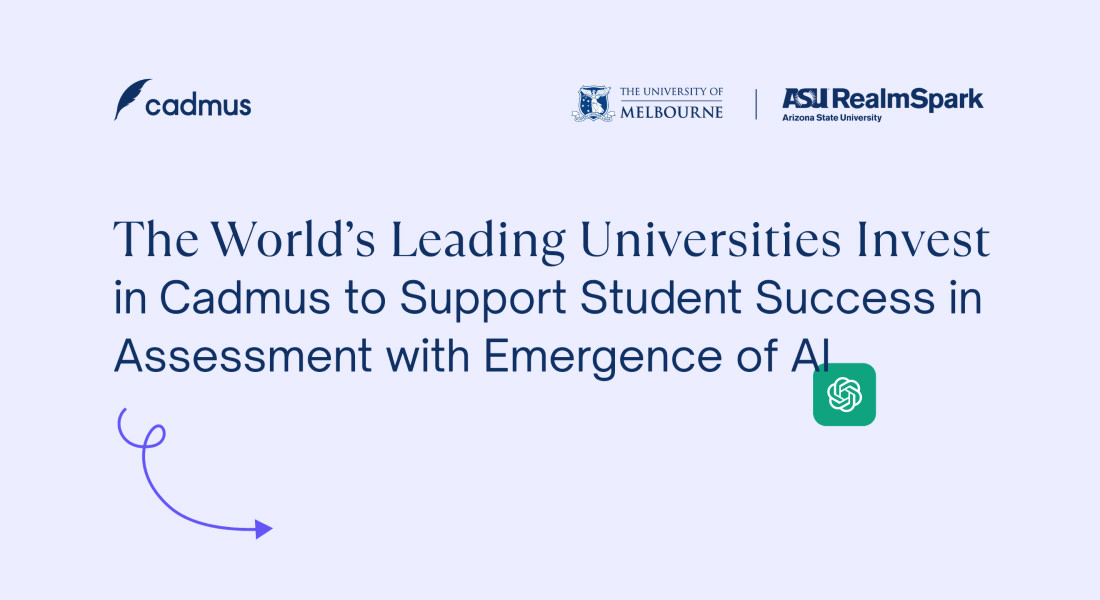The importance of support and teacher training in the rise of EdTech

Technology is transforming the way education is delivered in universities around the globe, as billions are invested into new and evolving solutions. However, the same excitement around new technology and digital transformation does not always filter through to the academics and teachers left to implement it. In many cases, we cannot assume that new innovations will automatically lead towards more effective teaching or improved pedagogical models.
Adopting the right tech
The first challenge when considering new ways to deliver specific courses, is using research and evidence to ensure the technology is the right fit. Within the constraints of the pandemic, there will be a continued focus on remote and hybrid instruction, putting more emphasis on the technology used to deliver courses. This means that the technology must integrate and benefit the pedagogical models used through the phases of learning and assessments.
Providing ongoing support
There is often a gap between the introduction of new technology from a top level and the support needed to truly make it effective.
It is understandable that universities, often limited by tight budgets, want to make the most of their technology investments. However, it can be rare to find ongoing support for new technologies, particularly direct to teachers. Without this support, the risk is that universities end up with technology that isn’t used long-term.
Adding to this, a global study found that through the pandemic experienced teachers adopted technology at a higher rate than new teachers. It also revealed that one of the top three needs of all teachers was better training to integrate technology into the classroom. The implication is that with a lack of ongoing professional development, teachers do not feel confident using technology impactfully.
At Cadmus, we are tackling this challenge directly, using a research-based approach to support the users of our platform.
We believe our role is to look beyond the simple day-to-day use of Cadmus as an assessment for learning tool, and towards how institutions will be able to harness the full potential of online and hybrid learning long-term.
Support at every step
We encourage a high-touch model for faculty development when introducing Cadmus to a university, investing heavily in up-front education to create confident users.
What this means is that on introducing Cadmus, we partner with IT teams to ensure a successful rollout, then continue working directly with learning design teams to ensure consistent support and engagement.
ECU's transition to online in 2020
One key example is our work with Edith Cowan University, when they were quickly forced to implement a fully remote alternative to invigilated exams.
Cadmus collaborated closely with ECU’s Centre for Learning and Teaching to ensure staff were onboarded and assessments were effectively redesigned for the remote setting.
The outcome was in 2020, over 360 units used Cadmus to deliver a range of alternative assessments like case studies, short-response questions, essays and reports during the traditional exam period.
Student satisfaction was high, with 89% reporting a positive experience using Cadmus. Teachers also reported the move online made things easier to focus on content, while the support from the Cadmus team was exceptional during consideration, development and using new styles of assessment.
“Now we are able to move back to invigilated exams, our School has decided to remain with the Cadmus alternative assessments because of their efficacy – and we plan to expand even further. Its ease of use for both lecturers and students, its versatility and the potential reduction in academic misconduct has further driven this sea change,” said Fiona Foxall, Associate Dean of Teaching and Learning (Nursing & Midwifery).
Elevating teaching
One of the biggest challenges facing academics is how to best incorporate teaching and learning research into their practice. It's important to provide support not just for using a platform, but for ways to improve and support student learning. This is an area at Cadmus that we love exploring. Our Learning Support team works closely with academics and learning design teams to help smoothly bridge the gap between theory and practice.
Ultimately the end goal is to facilitate improved learning opportunities for students, while encouraging academics to regularly reflect on their teaching practice and assessment designs.
Supporting students
The struggle with new technology is not just an issue for teachers but one faced by students. At Cadmus, we work collectively with teachers to educate and improve their ability to engage with students and demonstrate the value of using Cadmus.
To take pressure off teachers, we provide assistance for student onboarding. This includes practice activities for students, in-class support, and a range of introductory student materials. Teachers can instead focus on supporting students with subject content and learning — not how to use new technology.
Tackling these challenges can be difficult. It requires support from universities and providers, as well as engagement from end-users. However, elevating teaching and improving student learning should be an essential outcome of new technology.
Planning, funding, and investment at an institutional level into new technology must be supported with well-rounded professional development opportunities for academics if we want EdTech implementations to be successful, now and into the future.

Keep learning…
The latest in teaching and learning. Delivered to your inbox.



